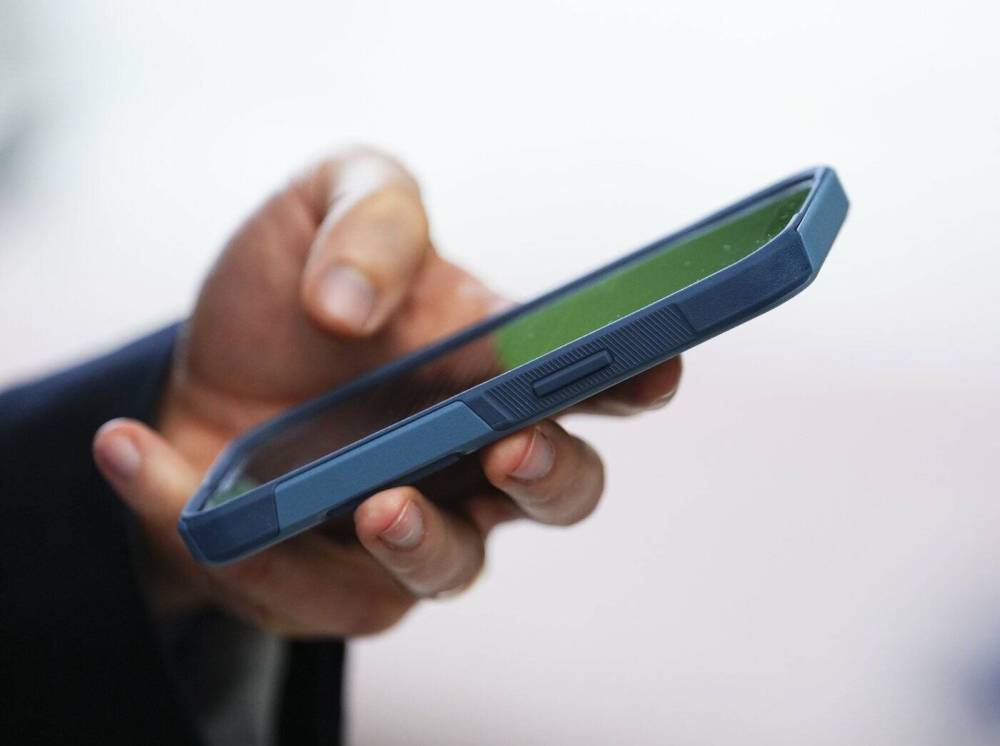The difficulties ahead with a cellphone ban
Advertisement
Read this article for free:
or
Already have an account? Log in here »
To continue reading, please subscribe:
Monthly Digital Subscription
$0 for the first 4 weeks*
- Enjoy unlimited reading on winnipegfreepress.com
- Read the E-Edition, our digital replica newspaper
- Access News Break, our award-winning app
- Play interactive puzzles
*No charge for 4 weeks then price increases to the regular rate of $19.00 plus GST every four weeks. Offer available to new and qualified returning subscribers only. Cancel any time.
Monthly Digital Subscription
$4.75/week*
- Enjoy unlimited reading on winnipegfreepress.com
- Read the E-Edition, our digital replica newspaper
- Access News Break, our award-winning app
- Play interactive puzzles
*Billed as $19 plus GST every four weeks. Cancel any time.
To continue reading, please subscribe:
Add Free Press access to your Brandon Sun subscription for only an additional
$1 for the first 4 weeks*
*Your next subscription payment will increase by $1.00 and you will be charged $16.99 plus GST for four weeks. After four weeks, your payment will increase to $23.99 plus GST every four weeks.
Read unlimited articles for free today:
or
Already have an account? Log in here »
Hey there, time traveller!
This article was published 23/08/2024 (481 days ago), so information in it may no longer be current.
Some Manitoba students are heading into a brave new world, whether they like it or not.
When students return to the classroom in the coming weeks, those in grades K-8 will for the first time do so under a blanket ban of cellphones in schools, while high-school students will no longer be allowed to use them in the classroom unless permitted by the teacher for educational reasons. (Carve-outs are also possible for medical or accessibility reasons.)
For some younger students, it won’t make much difference — despite stereotypes of ubiquitious cellphone ownership and youth among children, there are plenty in those grades who do not own one or are unaccustomed to having regular access to one.

THE CANADIAN PRESS/Sean Kilpatrick
Cellphone rules won’t be easy.
But for others, it’s a significant change, particularly for high-schoolers who may have had regular access to a phone in school since they were in elementary school.
It is a necessary change for a number of reasons, one welcomed by parents and teachers especially, but we should move forward with this new order understanding what it is we are asking of the people most affected.
However much chagrin it may have caused over the years, it is not really the fault of the students that education policy did not rise to meet the challenge of cellphones in class in a consistent or universal fashion (schools have often been left to set their own policies).
The toothpaste has been out of the tube for a long time, and students have simply made use of the privileges afforded them.
Getting the toothpaste back in that tube is certainly a possibility, but it won’t be easy, methods may be tried and fail spectacularly, and there will be some patience required.
To that end, we should acknowledge that a blanket ban on cellphone use, whether just in class or across the board for younger students, is going to come with an adjustment period.
The addictive properties of cellphones and the social media apps attached to so many of them is well-documented, and students have grown up with these accessories ready to hand at practically all hours.
So, clear as it may be that this is all for their own good, we should not be surprised if the withdrawal leads to distraction, frustration, or perhaps bouts of temper. (If parents want to sample a little of that distraction and frustration, they could trying locking their own phones in a desk drawer for a weekend.)
Adjusting to these new rules will have to be a collaborative effort. Students must enter into the situation in good faith, and teachers would do well not to insist on too painless a transition, and to set an example by refraining from using the devices as well.
And parents, for their part, must support the schools and teachers in their attempt to crack down on cellphone addiction in class.
Surely, there will be moments where a student refuses to abide by the new rules, at which point something will need to be done. But cellphones are intimate devices, in a sense — they are a main line of communication for many people, and are chock full of personal information, meaning confiscating them can be a delicate matter.
And yet that is exactly what should happen if their usage becomes a problem. It will be for parents, administrators and teachers to present a united front that this new phone-less environment must be built and enforced without exceptions being made.
Yes, everyone is going to have to demonstrate patience adjusting to the new way of things.
But for students, the message is still going to have to be clear: Use it, and lose it.
History
Updated on Thursday, August 29, 2024 11:50 AM CDT: Corrects typo








